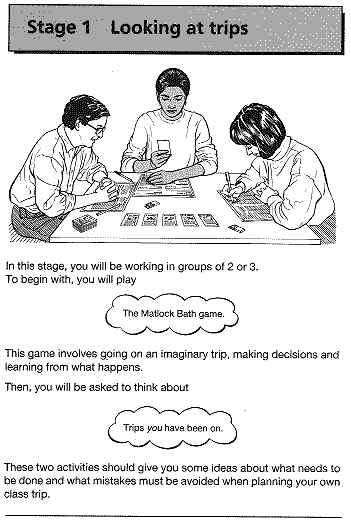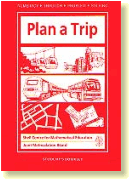Plan a Trip (1988)

In Plan a Trip students plan and undertake a class trip using costings, scheduling, surveys and everyday arithmetic.
- In a card game simulation, groups undertake and record imaginary trips, encounter problems and errors of judgement, then seek to correct them by better planning.
- Groups share ideas of possible places to go and produce a leaflet explaining these ideas. The class then work together to reach a decision on the best destination and look at possible means of transport.
- The class lists, and then shares out and undertakes the preparatory tasks that need to be done before the trip can take place.
- The trip now takes place and, afterwards, the students reflect on what happened.
The materials comprise a teacher’s guide, a student booklet and a set of photocopy masters.
Unless stated otherwise, these materials are Copyright © Shell Centre for Mathematical Education (see the materials for full details). You may download these materials for personal use and freely repoduce them for non-commercial purposes including teaching, research and staff development within your institution. For other uses, please contact the Bell Burkhardt Daro Shell Centre Trust at publications@mathshell.com for information.
Numeracy Through Problem Solving series
Numeracy Through Problem Solving is a sequence of five modules which develop students' ability to use mathematics together with other skills, in tackling problems of concern or situations of interest in everyday life - the original definition of numeracy in the Cockcroft Report.
Each module is designed to take between 10 and 20 hours to complete. Each provides a theme within which the students take responsibility for planning, organising or designing. They are based around the everyday interests of most students. Students work both individually and in groups and are able to choose which areas of mathematics to deploy. They also implement the results of their own decisions - a vital educational experience!
Although the specific references to GCSE are obsolete, these modules remain a unique resource for developing numeracy skills in engaging contexts across a wide range of ages and abilities.
